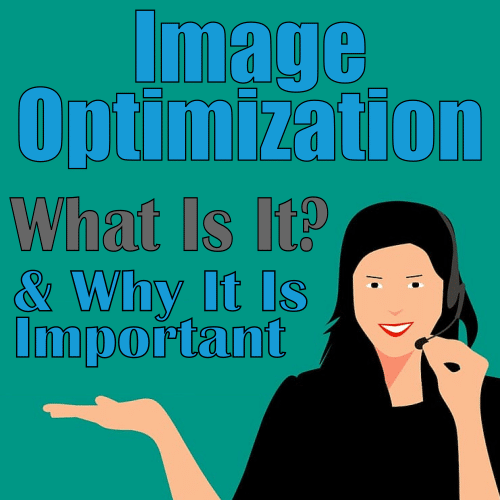Are you looking to supercharge your lead generation efforts and unlock the secrets to generating a steady stream of qualified leads? Look no further! In today’s highly competitive digital landscape, mastering the art of lead generation is crucial for businesses looking to thrive and succeed. Whether you’re a small startup or a well-established company, having a consistent flow of high-quality leads can make all the difference in driving business growth and achieving your goals.
One of the key components of successful lead generation is website optimization. Your website serves as a virtual storefront, and optimizing it can significantly impact your ability to capture leads. By ensuring your website is user-friendly, visually appealing, and strategically designed to guide visitors towards taking desired actions, you can maximize conversion rates and turn your website into a lead generation machine.
In addition to website optimization, understanding the difference between demand generation and lead generation is essential. While both concepts are crucial for business growth, they serve different purposes. Demand generation focuses on creating brand awareness and generating interest among potential customers, while lead generation is all about capturing specific information from individuals who have shown intent and interest in your products or services. By mastering both strategies and implementing them effectively, you can create a holistic approach to attract, engage, and convert your target audience.
Furthermore, brand awareness plays a pivotal role in successful lead generation. Before leads can convert into paying customers, they need to know and trust your brand. Building brand awareness through various marketing initiatives such as content marketing, social media, and influencer partnerships can help you establish credibility, gain exposure, and stay top of mind for your target audience. By consistently delivering value and showcasing your expertise, you can nurture leads and ultimately turn them into loyal customers.
Last but certainly not least, digital marketing is a powerful tool that can propel your lead generation efforts to new heights. With technology advancements and the rise of online platforms, businesses now have access to a wide range of digital marketing strategies to reach their target audience more efficiently and effectively. From search engine optimization (SEO) to email marketing, social media advertising, and content creation, mastering digital marketing techniques allows you to expand your reach, engage with your audience, and drive conversions.
By implementing these key strategies – website optimization, understanding demand generation and lead generation, building brand awareness, and harnessing the power of digital marketing – you’ll be well on your way to unlocking the secrets of successful lead generation. Stay tuned as we delve deeper into each of these topics and provide invaluable insights and strategies to help you generate more leads and accelerate business growth.
Website Optimization
When it comes to successful lead generation, one of the key factors to consider is website optimization. In today’s digital world, your website is often the first point of contact for potential customers. As such, it is crucial to ensure that your website is not only visually appealing but also designed to effectively capture and convert leads.
The first aspect of website optimization is to focus on user experience. Your website should be easy to navigate, with clear and intuitive menus that guide visitors to the information they are looking for. A cluttered or confusing website can be a major turn-off for potential leads, so it’s important to keep things simple and user-friendly.
Another important aspect of website optimization is the loading speed. In today’s fast-paced world, people expect websites to load quickly. If your website takes too long to load, it can lead to a high bounce rate, meaning people will leave your site before even giving it a chance. Optimizing your website’s loading speed can be achieved through various methods, such as compressing image sizes and minimizing the use of heavy scripts or plugins.
Fractional Chief Marketing Officer
Additionally, optimizing your website for search engines is essential for lead generation. By incorporating relevant keywords into your website’s content, meta tags, and headings, you can increase your chances of appearing higher in search engine results. This, in turn, can drive more organic traffic to your site and improve your lead generation efforts.
In summary, website optimization plays a crucial role in successful lead generation. By prioritizing user experience, improving loading speed, and optimizing for search engines, you can create a website that not only attracts visitors but also converts them into valuable leads.
Demand Generation vs Lead Generation
Demand generation and lead generation are two crucial concepts in the realm of marketing. While they may sound similar, they serve distinct purposes in the customer acquisition process.
Demand generation focuses on creating awareness and generating interest in a brand or product. It aims to stimulate the target audience’s curiosity and desire. This can be achieved through various strategies such as content marketing, social media campaigns, and search engine optimization. The ultimate goal of demand generation is to attract potential customers and engage them with the brand.
On the other hand, lead generation is all about identifying and capturing potential customers who have shown interest in a particular product or service. It involves gathering contact information from these prospects to initiate further communication. Lead generation tactics often include forms, surveys, and gated content that require the user to provide their details. The primary objective of lead generation is to build a database of qualified leads that can be nurtured and converted into paying customers.
Although demand generation and lead generation are separate strategies, they are closely intertwined. Effective demand generation efforts can help generate leads by attracting a larger pool of prospects. Likewise, successful lead generation relies on a strong brand presence created through demand generation activities.
Brand Awareness and Digital Marketing

Brand awareness plays a vital role in both demand generation and lead generation. Establishing and maintaining a strong brand presence can significantly impact a customer’s decision-making process.
Digital marketing is an essential tool for boosting brand awareness. With the increasing prominence of online platforms, businesses can leverage various digital marketing techniques to reach their target audience effectively. Strategies such as search engine optimization (SEO), social media marketing, and influencer collaborations can help increase brand visibility and engagement.
By utilizing digital marketing channels, brands can create valuable content that resonates with their target audience. This content can be shared across different online platforms like blogs, social media, and email newsletters. Through consistent and strategic digital marketing efforts, businesses can enhance their brand awareness and reach a wider audience, ultimately increasing their chances of generating leads.
When it comes to lead generation, brand awareness plays a crucial role in establishing trust and credibility with potential customers. A well-known and reputable brand is more likely to attract qualified leads who are interested in their products or services. Therefore, it is important for businesses to invest in building brand awareness as part of their lead generation strategy.
In conclusion, demand generation and lead generation play distinct but interconnected roles in successful marketing campaigns. While demand generation focuses on creating interest and awareness, lead generation aims to capture and nurture potential customers. Brand awareness, especially through digital marketing efforts, is crucial for both strategies to effectively engage with the target audience and generate high-quality leads.
Brand Awareness and Digital Marketing
In today’s highly competitive business landscape, brand awareness plays a crucial role in successful lead generation strategies. With the increasing reliance on digital marketing, businesses have a unique opportunity to reach a wider audience and establish a strong brand presence online.
One of the key aspects of digital marketing is leveraging various online channels to increase brand visibility. Social media platforms, search engine optimization (SEO), content marketing, and email campaigns are just a few examples of the powerful tools businesses can use to enhance brand awareness. By strategically crafting engaging and relevant content, businesses can attract the attention of their target audience and build a loyal following.
Furthermore, digital marketing allows businesses to track and analyze the effectiveness of their brand awareness efforts. Through the use of analytics and data-driven insights, businesses can gain valuable information about their target audience, their preferences, and behaviors. This knowledge can then be used to refine marketing strategies and deliver more personalized and impactful campaigns, consequently driving lead generation.
To maximize the impact of brand awareness in lead generation, it’s essential to optimize websites effectively. A well-designed and user-friendly website can serve as a powerful tool to capture the attention of potential leads. By ensuring seamless navigation, fast loading speeds, and compelling visuals, businesses can create a positive user experience and make a lasting impression on their website visitors.
In conclusion, digital marketing provides businesses with a multitude of opportunities to elevate brand awareness and drive successful lead generation. By utilizing various online channels and optimizing websites, businesses can enhance their visibility, engage with their target audience, and ultimately generate more leads. The key lies in understanding the importance of brand awareness in the digital era and leveraging it effectively to stay ahead of the competition.
